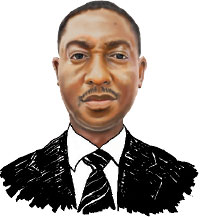So it is already 15 years since we began this our longest experience with, well, democratic rule? Unlike all our previous attempts, this one has come a long way that we can fairly say it has come to stay. In a way we have been able to exorcise the “abiku” or “ogbanje” spirit out of our ‘democracy’ (read civilian rule). My children, who were all born, post military rule cannot fathom what it meant for us to live under the rule of despots who neither sought nor obtained our permission to be our leaders. That’s the shame and indignity of the past we lived with and now have to explain to our children how we ever lived with it.
So now, we are led by people who at least sought our permission and to a large extent got it to govern us. If they therefore pride themselves as ‘democratically-elected leaders’ they are right, somewhat. I don’t know about the nonsense of calling themselves right honourable, distinguished and excellencies though. But that is another discussion entirely.
What exactly do we mean by democracy, whose day Nigerians are celebrating this season? It is government by elected representatives. The defining word here is ‘elected’, not selected. So there cannot be democracy without elections. And elections properly so called, presupposes the right to choose freely. It means that the entire process of election, not just the voting, is free of under-the-table dealing that leaves voters with little or no choice. Otherwise we may be practising the joke we see in many countries, especially those who add the word, ‘democratic’ to their names but are too often the least democratic. See for example, the Democratic Republic of Congo (DRC) or the Democratic Republic of Korea.
It seems Nigeria is gradually becoming another democratic republic, given how undemocratic the current players in politics are carrying on. Sadly the problem is not limited to the party in government at the centre but is linked to virtually all the existing (main) political parties in the land. Rather than operate democracy for what it is, a system that allows for the consideration of variety of views and opinions on every issue before putting the decision to vote, our present democratic culture accepts of no opposition, alternative view or dissention. Holders of contrary views are often derided as “disgruntled elements”, “detractors” and those who do not wish the state well.
At the national level and in discourses citizens are increasingly classed into two groups in virtually every issue. That explains why they brand us as northerners and southerners, as Christians and Muslims, as PDP or APC, as pro-Jonathan or anti-Jonathan elements etc. To this brand of ‘democrats’, there are no middle courses and no multiple choices.
It is no democracy if we keep hearing politicians and those in the elite class say things like ‘Jonathan must not contest again’ or ‘Jonathan must continue as president’ or ‘the next president/governor must come from a particular zone or area’. Some of these statements come with open or veiled threats. In making such silly and undemocratic statements, they suggest that this democracy is about what a few persons want, not what the electorate want. That simply put is elitocracy.
The undemocratic nature of our ‘democracy’ is often hatched within the political parties. By the way, who remembers the last time that any of the dominant political parties ever had an open contest for party positions and standard bearer selection? What we keep hearing these days are ‘consensus’ candidates who emerge through a process manipulated by a few bigwigs of the parties. The leadership of the political parties mount so much pressure on some candidates, even cajoling and bribing or buying them out of democratic contests just so that the anointed candidate would emerge unopposed or as consensus candidate. The so-called consensus candidates are usually the ones anointed by what I call the ‘sole spiritual leader’ or ‘general overseer’ of the political party or, at best, a cabal. For many smart politicians therefore, they spend all their efforts trying to curry the favour of the ‘general overseer’ or cabal of their party than be worried about wooing the voters. And so I ask, why do our political class so abhor election, even in a democracy?
If after 15 years of attempting to practice democracy this is all we have to show, then we need to re-strategise and create the building blocks of democracy, starting with children in schools. The National Orientation Agency and other like institutions should begin to design democratic studies curriculum for schools and if such already exists, we must ensure that this is being taught. Unfortunately, everyone, including children learn and practice more of what they see than what they are taught in class.
It’s certainly a long walk to democracy for us. But for now, ours is democracy sans democrats.
Published in http://www.punchng.com/opinion/reclaiming-our-undemocratic-democracy/
and http://www.premiumtimesng.com/opinion/161736-reclaiming-undemocratic-democracy-obo-effanga.html
